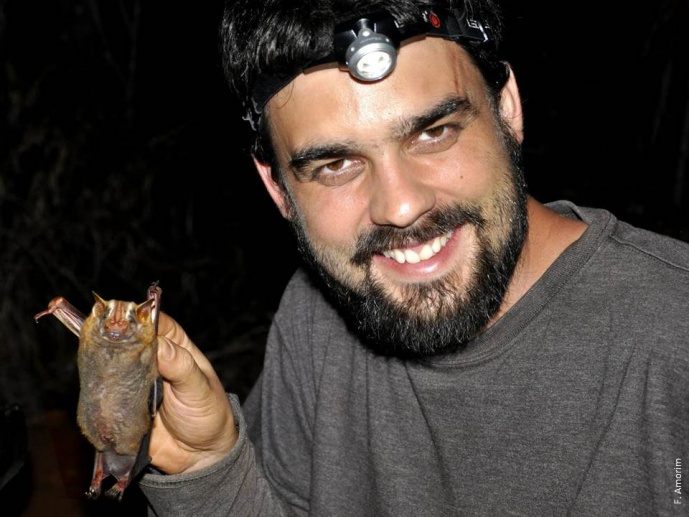Francisco Amorim
Collaborator
My main interests are wildlife and ecosystems' conservation, disturbance ecology and applied ecology, focusing on how human activities and infrastructures contribute to habitat loss and fragmentation and its consequences for biodiversity conservation. I am personally fascinated on how such man induced alterations can influence species distributions, population dynamics and genetic structure. My master thesis, as well as an important part of my past work, was devoted to bats mortality at wind farms.
In 2014 I enrolled the BIODIV PhD programme in CIBIO-InBIO in partnership with the Rossiter Lab at the Queen Mary University of London. My PhD thesis under the title "Effects of a large reservoir on the populations of a rupiculous species: a case study with the unknown European free-tailed bat" will be carried under the Sabor-LTER project and will focus on one of the European bat species with the largest knowledge gap, the cliff-roosting bat Tadarida tenioti. By combining spatial analyses and genetic tools, I intend to characterise and quantify the consequences of habitat loss and fragmentation due to a large reservoir on social structure, population size and connectivity. The ultimate goal is to identify landscape features that promote connectivity and gene flow among known roosts and, therefore, help to maintain population viability and genetic diversity.
Click here to visit CIBIO-InBIO's Bat Team’s website.
